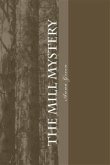The Mill on the Floss by George Eliot is a novel by George Eliot, first published in three volumes in 1860 by William Blackwood. The first American edition was published by Harper & Brothers, Publishers, New York.
Spanning a period of 10 to 15 years, the novel details the lives of Tom and Maggie Tulliver, siblings who grow up at Dorlcote Mill on the River Floss. The mill is situated at the junction of the River Floss and the more minor River Ripple, near the village of St Ogg's in Lincolnshire, England. Both the rivers and the village are fictional.
The novel begins in the late 1820s or early 1830s – several historical references place the events in the book after the Napoleonic Wars but before the Reform Act of 1832. (In chapter 3, the character Mr Riley is described as an "auctioneer and appraiser thirty years ago", placing the opening events of the novel in approximately 1829, thirty years before the novel's composition in 1859.
In chapter 8, Mr Tulliver and Mr Deane discuss the Duke of Wellington and his "conduct in the Catholic Question", a conversation that could only take place after 1828, when Wellington became Prime Minister and supported a bill for Catholic Emancipation). The novel includes many autobiographical elements and reflects the disgrace that George Eliot (Mary Ann Evans) experienced while in a lengthy relationship with a married man, George Henry Lewes.
Spanning a period of 10 to 15 years, the novel details the lives of Tom and Maggie Tulliver, siblings who grow up at Dorlcote Mill on the River Floss. The mill is situated at the junction of the River Floss and the more minor River Ripple, near the village of St Ogg's in Lincolnshire, England. Both the rivers and the village are fictional.
The novel begins in the late 1820s or early 1830s – several historical references place the events in the book after the Napoleonic Wars but before the Reform Act of 1832. (In chapter 3, the character Mr Riley is described as an "auctioneer and appraiser thirty years ago", placing the opening events of the novel in approximately 1829, thirty years before the novel's composition in 1859.
In chapter 8, Mr Tulliver and Mr Deane discuss the Duke of Wellington and his "conduct in the Catholic Question", a conversation that could only take place after 1828, when Wellington became Prime Minister and supported a bill for Catholic Emancipation). The novel includes many autobiographical elements and reflects the disgrace that George Eliot (Mary Ann Evans) experienced while in a lengthy relationship with a married man, George Henry Lewes.









